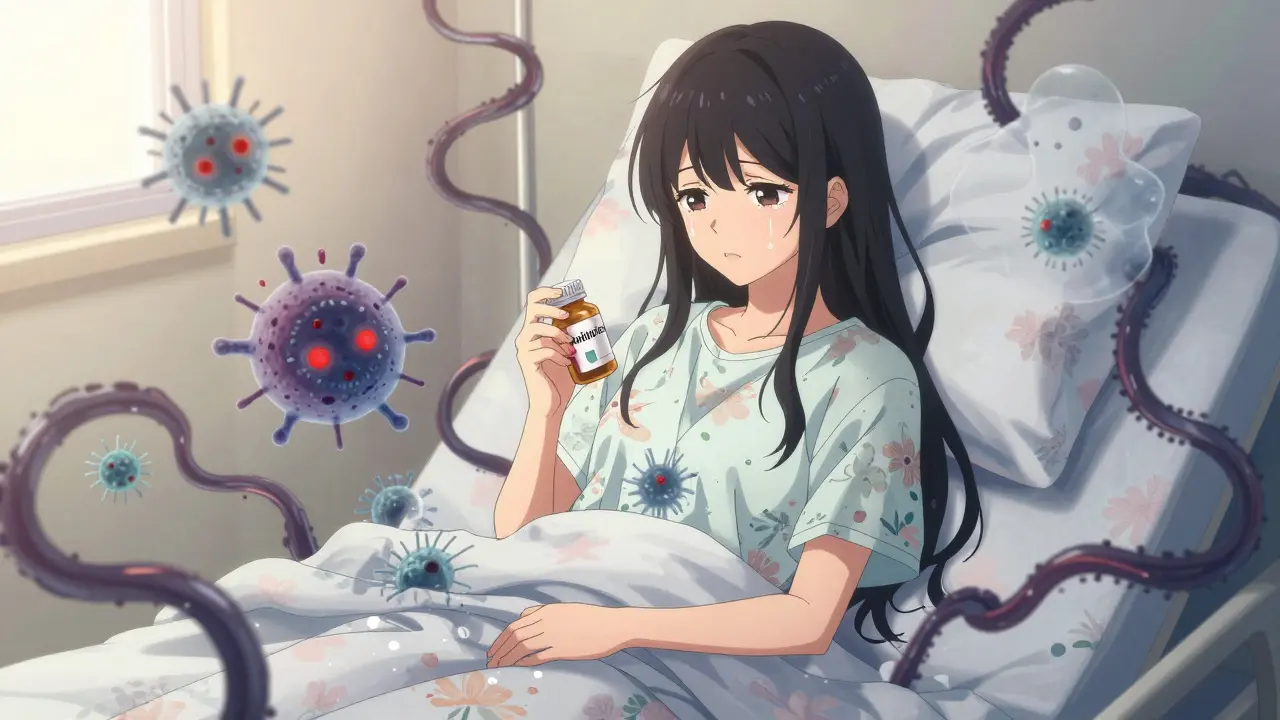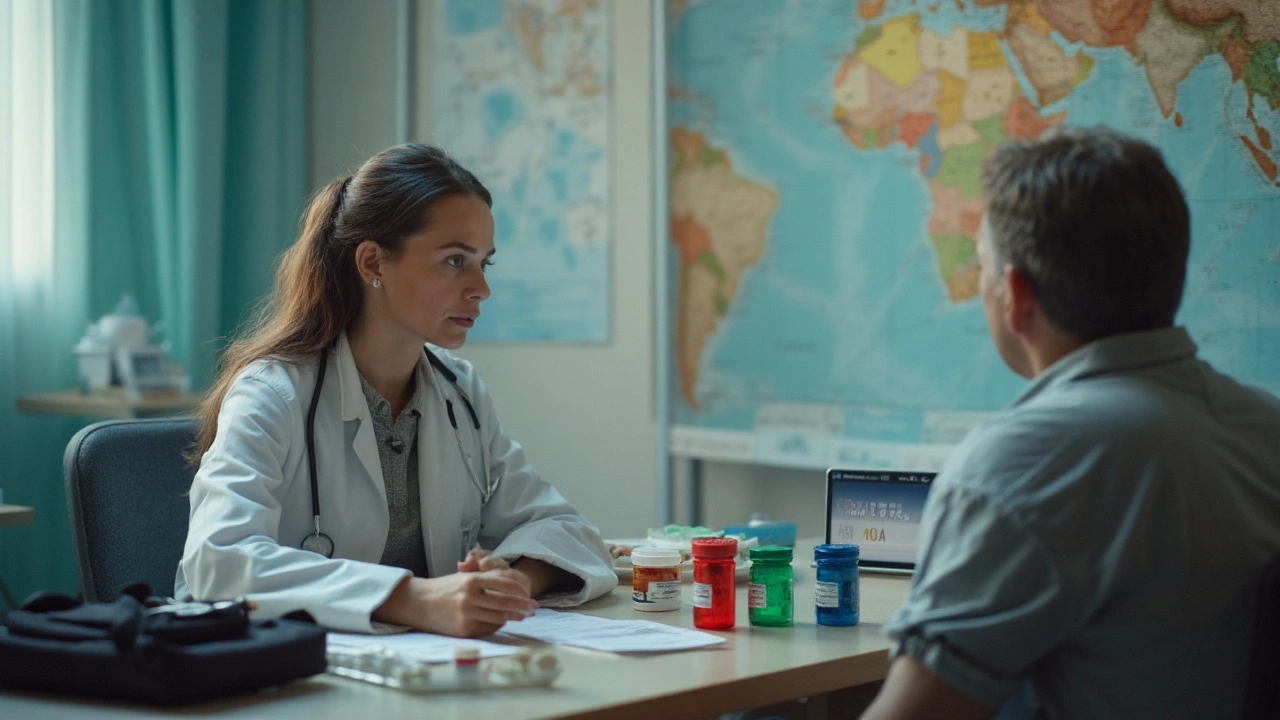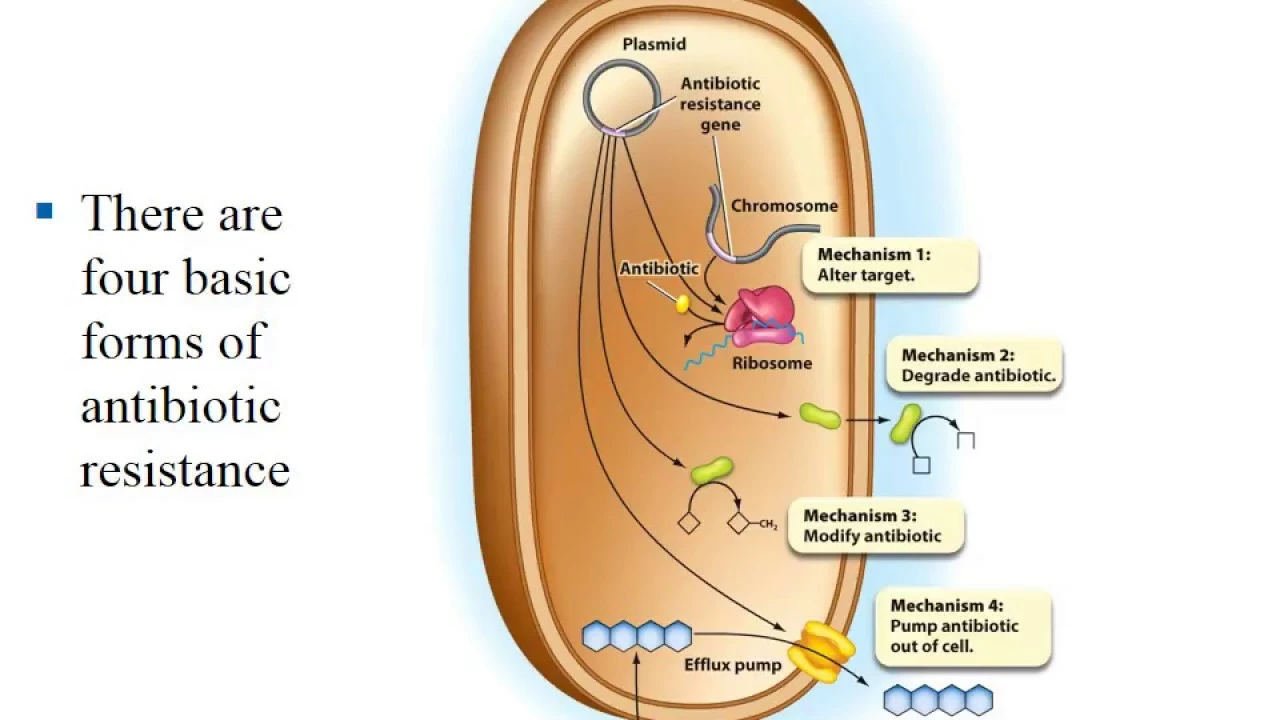Antibiotic Resistance: What You Can Do Now
Antibiotic resistance is already changing how doctors treat common infections. Bacteria that won’t respond to usual drugs mean longer illness, more hospital stays, and higher bills. You can help slow it down without being a scientist.
How does resistance happen? When antibiotics are used, most bacteria die but a few survive because of random traits. Those survivors multiply and pass resistance on. Misusing antibiotics—taking them for colds, skipping doses, or using leftover pills—speeds this process.
Practical steps at home matter. Never demand antibiotics for viral illnesses like colds or flu. If your doctor prescribes one, follow the full course exactly. Don’t save leftovers or give someone else your medicine. If side effects are severe, talk to your doctor before stopping; often the right move is a dose change or different drug.
Preventing infections reduces the need for antibiotics. Wash hands thoroughly, keep wounds clean, and stay up to date with vaccines. Simple moves—covering coughs, not sharing razors, cleaning high-touch surfaces—cut transmission. At work or school, stay home when contagious to protect others and slow spread.
Ask smart questions when you see a provider. Is this infection likely bacterial? Can we wait and retest? Is a narrow-spectrum antibiotic appropriate instead of a broad one? Point-of-care tests exist for some infections and can avoid unnecessary prescriptions. If you’re unsure, request clarification—good doctors expect patients to ask.
Agriculture and pets play a role too. Avoid antibiotics for growth promotion in livestock and ask your vet about alternatives for animals. Buying meat raised without routine antibiotics and supporting policies that limit their overuse helps on a population level.
New antibiotics are rare and expensive to develop, so prevention and smarter use are the fastest solutions. Stewardship programs in hospitals—tracking use, reviewing prescriptions, and educating staff—work. You can support these efforts by following guidance and completing treatments as directed.
When traveling, be cautious with antibiotics. Traveler’s diarrhea often resolves without drugs; if you do need treatment, seek local guidance or carry a recommended antibiotic and clear instructions from your doctor. Avoid self-prescribing based on internet searches.
What to do if you suspect resistant infection
If symptoms persist after treatment—fever, worsening pain, or lack of improvement—contact your healthcare provider. They may order cultures or switch to a different antibiotic based on lab results. Don’t try stronger drugs on your own; that risks more resistance and harm.
Quick takeaways
Use antibiotics only when needed, finish the full course, practice hygiene and vaccination, ask questions, and avoid unnecessary antibiotics in animals. Small actions at home add up to big impact. Read more on CanPharm for drug guides and safe ways to buy medications when prescribed.
If you want reliable reading, check trusted sources: WHO, CDC, and CanPharm articles like 'How to Buy Affordable Ciprofloxacin Online' for safe antibiotic use tips. Talk to your pharmacist about side effects and interactions. Community clinics often offer stewardship advice and vaccination clinics—use them. Small choices today protect effective antibiotics for tomorrow. Share what you learn.

Antibiotic Overuse: How Misuse Fuels Resistance and C. difficile Infections
Antibiotic overuse is driving deadly resistance and C. difficile infections worldwide. Learn how misuse is making common infections untreatable-and what you can do to help.

Erythromycin for Typhoid Fever: When to Use It, Dosing, and Prevention (2025 Guide)
Does erythromycin still treat typhoid? Learn when to use it, dosing, side effects, and safer alternatives-plus vaccines and prevention tips updated for 2025.
-
3.09.25 -
Alistair Mukondiwa -
11

Clavulanic Acid: Addressing the Challenges of Antibiotic Resistance
In my latest blog post, I discussed the growing issue of antibiotic resistance and how Clavulanic Acid is playing a crucial role in combating it. This powerful substance works by inhibiting the enzymes responsible for breaking down antibiotics, allowing our medications to remain effective against bacterial infections. I also delved into how the combination of Clavulanic Acid with other antibiotics has led to improved treatment outcomes for patients. Furthermore, I touched upon the ongoing research to discover new sources of Clavulanic Acid and the importance of continued efforts in this field. Overall, the post emphasized the significance of Clavulanic Acid in addressing the global challenge of antibiotic resistance.
-
5.05.23 -
Alistair Mukondiwa -
19
- Drug Information (69)
- Health and Wellness (59)
- Pharmacy Information (25)
- Medical Conditions (23)
- Supplements (4)
- Diabetes (4)
- Travel Health (3)
- Mental Health (3)
- Heart Health (2)
- Parenting (2)
-
Nail Disorders: How to Tell Fungal Infections Apart from Psoriatic Changes
15 Dec 2025 -
Antihistamine Tolerance: Does Long‑Term Use Reduce Effectiveness?
25 Oct 2025 -
Montelukast for Allergic Airways: How Leukotriene Inhibitors Work and When They’re Used
20 Dec 2025 -
Using Copay Cards Safely: Access Without Compromising Care
17 Feb 2026 -
Ciclopirox for Hair Loss: Can It Really Help Regrow Hair?
27 Oct 2025

16.01.26
Alistair Mukondiwa
11